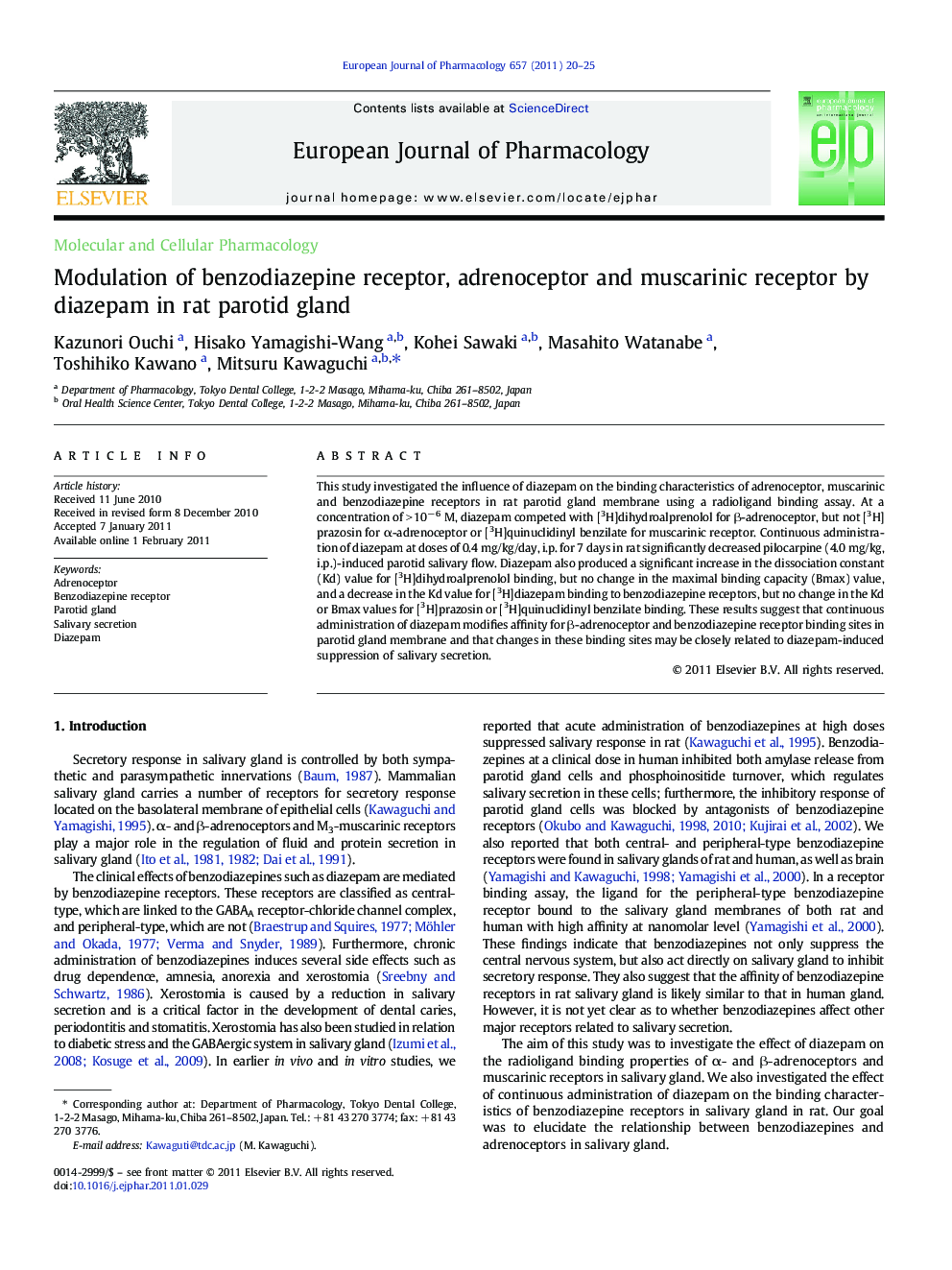| کد مقاله | کد نشریه | سال انتشار | مقاله انگلیسی | نسخه تمام متن |
|---|---|---|---|---|
| 2532877 | 1559031 | 2011 | 6 صفحه PDF | دانلود رایگان |
عنوان انگلیسی مقاله ISI
Modulation of benzodiazepine receptor, adrenoceptor and muscarinic receptor by diazepam in rat parotid gland
دانلود مقاله + سفارش ترجمه
دانلود مقاله ISI انگلیسی
رایگان برای ایرانیان
کلمات کلیدی
موضوعات مرتبط
علوم زیستی و بیوفناوری
علم عصب شناسی
علوم اعصاب سلولی و مولکولی
پیش نمایش صفحه اول مقاله

چکیده انگلیسی
This study investigated the influence of diazepam on the binding characteristics of adrenoceptor, muscarinic and benzodiazepine receptors in rat parotid gland membrane using a radioligand binding assay. At a concentration of > 10â 6 M, diazepam competed with [3H]dihydroalprenolol for β-adrenoceptor, but not [3H]prazosin for α-adrenoceptor or [3H]quinuclidinyl benzilate for muscarinic receptor. Continuous administration of diazepam at doses of 0.4 mg/kg/day, i.p. for 7 days in rat significantly decreased pilocarpine (4.0 mg/kg, i.p.)-induced parotid salivary flow. Diazepam also produced a significant increase in the dissociation constant (Kd) value for [3H]dihydroalprenolol binding, but no change in the maximal binding capacity (Bmax) value, and a decrease in the Kd value for [3H]diazepam binding to benzodiazepine receptors, but no change in the Kd or Bmax values for [3H]prazosin or [3H]quinuclidinyl benzilate binding. These results suggest that continuous administration of diazepam modifies affinity for β-adrenoceptor and benzodiazepine receptor binding sites in parotid gland membrane and that changes in these binding sites may be closely related to diazepam-induced suppression of salivary secretion.
ناشر
Database: Elsevier - ScienceDirect (ساینس دایرکت)
Journal: European Journal of Pharmacology - Volume 657, Issues 1â3, 25 April 2011, Pages 20-25
Journal: European Journal of Pharmacology - Volume 657, Issues 1â3, 25 April 2011, Pages 20-25
نویسندگان
Kazunori Ouchi, Hisako Yamagishi-Wang, Kohei Sawaki, Masahito Watanabe, Toshihiko Kawano, Mitsuru Kawaguchi,